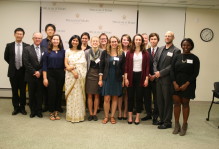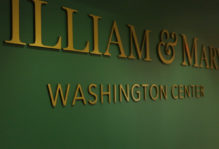Learning on Fire by Maddie Talnagi ’20
Guest blogger Maddie Talnagi ’20 provides us an overview of the realities of public education in the United States. Talnagi was a student in my winter seminar, Urban Education.
As Irish poet William Butler Yeats once wrote, “Education is not the filling of a pail, but the lighting of a fire.” While his words beautifully capture the ferocity of learning, they fail to acknowledge the millions of children across the country who are unable to light even a spark. For these children, education is nothing more than the scent of smoke from someone else’s distant fire. Generational poverty is the cruel reality of what separates the pail fillers from the fire starters. Children whose families have been bound to the shackles of poverty for generations are likely to be focused more on survival than education. With food insecurity and homelessness running rampant in urban communities, education is often placed on the back burner for thousands of children.
On the opposite end of this spectrum, there are the privileged few whose fires have been burning long before their arrival. Generational wealth allows these students the chance to explore education in ways that their impoverished counterparts can only dream of. Their boundless opportunities and unrestricted access to quality education continuously kindle their fire and encourages it to grow.
Educational institutions are deeply reflective of the students who attend and the communities they serve. The wealthy are well-versed in the luxuries of private education and meaningful extracurriculars while their impoverished neighbors are largely confined to the limited resources of public schools. As widely as socioeconomic status ranges in urban areas, so do the educational institutions that are found there. Zip-codes are shared, but lifestyles are not.
For the unlucky majority, education is inconsistent. Simply accessing education can prove to be an insurmountable struggle. Children in urban communities quickly grow to realize that their lives are peppered with the nuisances of poverty. By facing the daily struggles associated with public transportation, urban students are geographically limited to quality education. With no access to private transportation, daily commutes consist of carefully stepping over glass shards, inhaling the stale stench of smoke wafting from porches, and avoiding contact with street violence. It is not uncommon for children living in poverty to stop attending school, in order to take care of siblings and manage households. With a lack of positive role models, these children’s lives are centered around survival, not educational development.
Even for the students committed to studying, the struggle does not end there. Resources in schools and their home lives are both incredibly limited. The necessary technology is not available for purchase when electricity is barely able to remain on. Public schools frequently lack the funding to provide proper resources for their students. Enriching programs such as art and music are often the first to be cut from curriculums to ensure that other basic needs are being met. While most of the children who attend suburban schools are thrilled at the possibility of a snow day, it is an entirely different story for the students of impoverished urban communities. When schools close due to inclement weather, some students lose the guarantee of a daily meal.
Only a few miles away from where poverty reigns, privilege shines. The lucky few who are born into wealth are introduced to the joys of learning from a young age. Competition in this world is fierce, rigorous academics are treated as a full-time job while thriving in sports and extracurriculars is all but mandatory. Though one’s initial instinct may be to write these children off as selfish or ignorant to the realities of the world around them, it is critical to keep in mind that they did not choose the life they were born into, and it is even fair to reason that the high expectations constantly placed upon them by their school and family wears heavily on their mental health. These students don’t know what it’s like to not have a meal waiting for them at home, but they do know the demand for perfection that is always awaiting them.
The elite private schools of urban areas are equipped with deep pocket donors ready to contribute to the next solar operated academic building or study abroad program. Urban private schools do not have to worry about a loss of students to the newly sprouted charter school down the street, or the inability to recruit teachers onto their staff. Because these institutions are free from the basic worries that plague the rest of the city, they are able to focus on less important issues, or even create their own problems to solve. An example of this is apparent at Sidwell Friends School in Washington DC because the school does not have to worry about its students starving or having the proper resources on campus, it has been able to shift its focus onto becoming environmentally sustainable. For urban public schools, this is an issue that seems trivial in comparison to what they are dealing with.
Generational wealth and poverty go hand in hand to define the opportunities a child is granted throughout their educational career. In our country today, education is treated as a commodity which only the wealthy are able to purchase, while the most vulnerable populations are forced to remain trapped in the vicious cycle of poverty that limits them from achieving success and self-sustainability. Access defines opportunity, while time and time again citizens are struck with the realization that fortune does not favor the bold, it favors the wealthy. There is no one right way to solve this issue, no one person can single-handedly close the poverty gap and provide equal opportunity for all, but by realizing these inequities exist and have the power to alter the course of a person’s life, we grow closer to handing each child a match and giving them the materials they need to light their own fire.




No comments.
Comments are currently closed. Comments are closed on all posts older than one year, and for those in our archive.